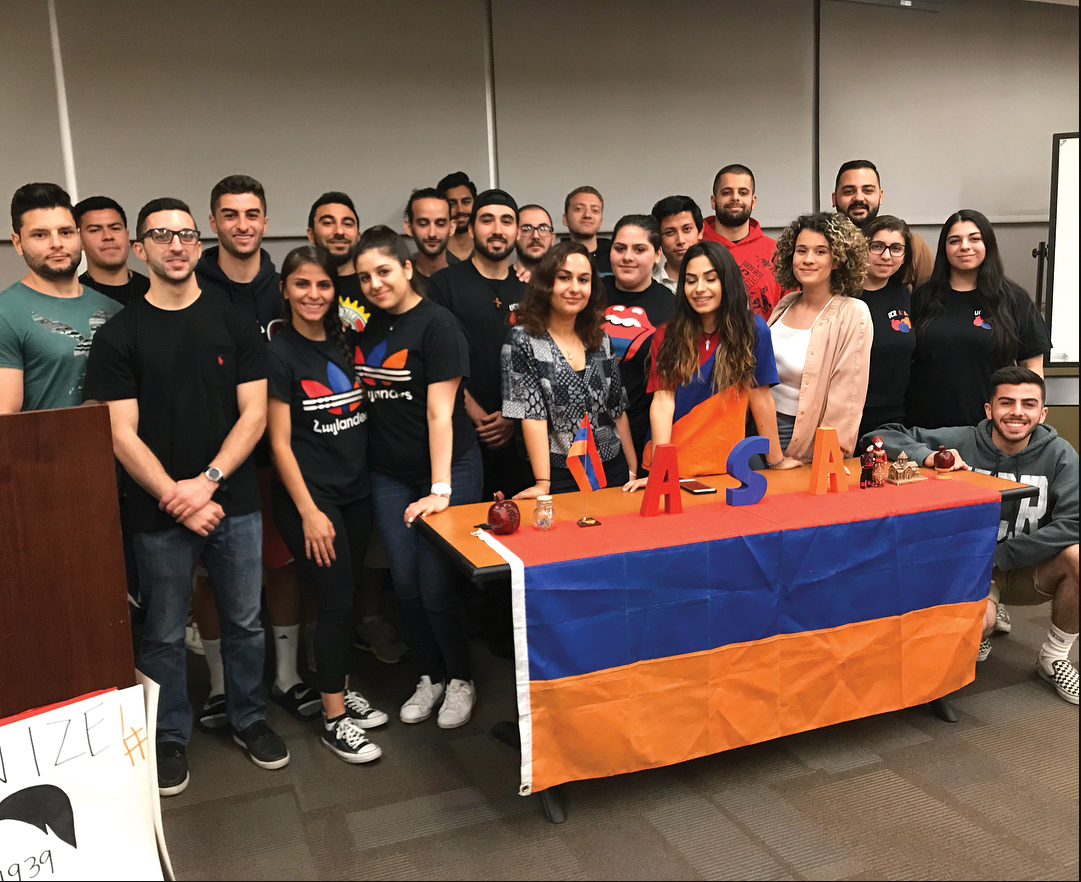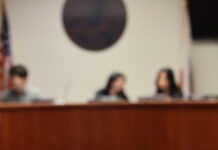Last Tuesday, April 24 was the anniversary of the Armenian Genocide, where 1.5 million Christian Armenians were killed by the Young Turks in World War I. The Young Turks overthrew Turkey’s Sultan Abdul Hamid in 1908 and took power soon after. As nationalists, they aimed to “Turkify” the then-Ottoman Empire, ostracizing Armenians in the process. Turkey claims the killings were partly due to spillover fighting from the First World War as well as a response to Armenians under their rule attempting to gain independence by fighting against them on Russia’s side.
On Monday, April 23 the Armenian Student Association (ASA) of UCR held a meeting commemorating the Genocide.
In the meeting, the ASA invited Joseph Kaskanian to speak about the Genocide and recent political developments in Armenia. Kaskanian was the treasurer of the Armenian Youth Federation (AYF) from September 2016 to August 2016. According to the AYF website, the Federation “strives to advance the goals of a free, independent and united Armenia. Towards these ends, the AYF is dedicated to the principles of freedom, democracy, self-determination, economic justice, and social equality.”
Kaskanian has been a board member of the Armenian National Committee of America (ANCA) since the end of his AYF treasury term. ANCA aims to create a free and independent Armenia, as does AYF, and according to the website also aims to “influence and guide U.S. policy on matters of interest to the Armenian American community” while acting as representative of the said community, as well as its mediator to the government.
When asked in an interview about why he came to the meeting, Kaskanian found personal commitment to both raising awareness of the Armenian genocide and encouraging Armenian activism today. “They (the ASA) asked if I would give an educational speech about this topic, because it means a lot to me,” Kaskanian said. “I continue to fight for our cause here (in America), and we’ll continue to fight for our cause, because I don’t want to be silenced by the Turkish government; they tried silencing us once, and I’m not going to get silenced (either).”
During his speech, Kaskanian stressed that the Armenian generation of today should be personally responsible in furthering the cause of Armenian organizations. “What we need to be aware of, as students of the United States, as future workers for our cause, (is) ‘What are we doing?’” Kaskanian inquired. “What are we doing for our cause? What are we doing for the Armenian Genocide? We’re remembering April 24, but what about April 25? What happens then? I want you guys to get engaged with the Armenian community, get involved.”
As an example of Armenian activism in action, Kaskanian referred to an event that happened earlier that day, where Armenian Prime Minister Serzh Sargsyan resigned from his position amidst protests from both citizens and soldiers. Sargsyan’s 10-year term as president ended last March, but Armenia’s parliament voted to transfer presidential powers to the hands of the prime minister, which Sargsyan soon became after the decision. As a result, protests have transpired in the capital of Yerevan since April 13, eventually convincing Sargsyan to resign 11 days later.
Kaskanian likened the experience of the protestors to that of the Armenians that fought during the Armenian Genocide. “The protestors were fed up with constant oppression, all the corruption, a lot of things and they fought to make sure they saw some results. Our ancestors in 1915 did the same thing. They could have easily just given up, but (they) fought back. We lost 1.5 million people, but you all are here right now, because your ancestors fought for you guys, and if they fought for us then, we should fight for them now.”
The modern generation of Armenians today is where Kaskanian believes even greater change can come from, citing the Glendale protest on Sunday as an example, which was targeted against Sargsyan’s position of power before his resignation the next day. “If I were a Turkish or United States government, I would be really scared. Why? Because we’re smart, we’re educated and we have passion; if we’re going to do something, put our minds to it, then we’re going to do it,” Kaskanian declared. “I was in Glendale at the protest. We shut Brand Boulevard, Central, Orange, Broadway and Glendale. The community I felt there was like no other. Everyone was upset and happy at the same time, upset with (the situation they were in), but happy to see an Armenian standing right next to them, walking together, united.”
After the speech, the ASA members and audience participated in a student panel to discuss their ancestors’ experiences as victims of the Armenian Genocide.
One speaker of the panel was Meri Mkrtchyan, a second-year art history major. Mkrtchyan discussed the experiences of her twice-great grandmother, whose husband helped hold off Turkish deportators so she and the rest of her village could escape. She brought no warm clothing, thinking she would return to the village later, and had her four children with her, two of whom were two-year old twins that died during her escape, exemplifying the conditions the Armenians underwent, if they lived through them, to escape.
After Meri finished her story, she was followed by Maher Zaher, a fifth-year environmental engineering major. He talked about how he lived with his friend Mike for nine months before finding out that their grandparents came from the same village. Incidentally, two other people in the room had ancestors from that village as well. The room voiced delight in the timing of these revelations, considering that it was the eve of a historic Armenian event. “I can’t think of many other nations that are as close knit and tight as us,” Zaher reflected.
Later in the panel, attention was then given to David Ayrapetyan, a second-year business major, who talked about his grandmother’s experience in the Genocide. She was born into a family of 21 people, but was forced to walk a death march with her mother and sister. The latter two were killed, and the grandmother eventually settled in Georgia, after escaping an arranged marriage with a Turkish family. She was the only survivor of that family.
At the end of the panel, Karam, a spectator from the audience, spoke up to offer the perspective of an outsider; he pointed out that he was from the Bay Area and hadn’t much contact with Armenians in the past. He emphasized that it was important for groups like the Armenians to have healthy environments for discussion, such as the ASA meetings, as well as that everybody be a global citizen. “You guys opening up is what made me want to come here. Sure, if you guys were to tell me, ‘Armenian history is like this and this and this,’ for the most part, it’s not going to be enough to make someone care for your cause. I care about your guys’ cause because I care for these people.” The room applauded in response to his remarks.
The next ASA meeting is on Monday, May 7, in HUB 357.








